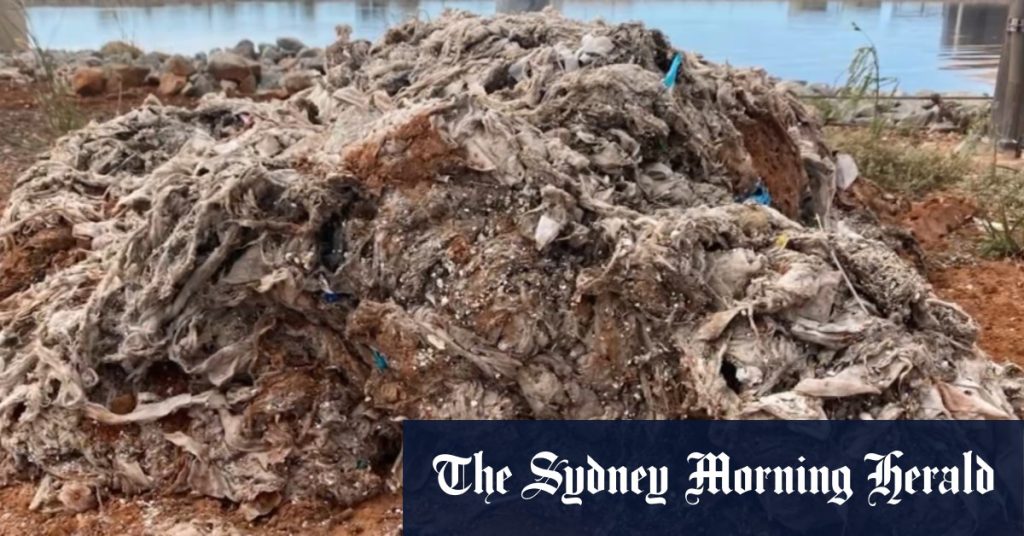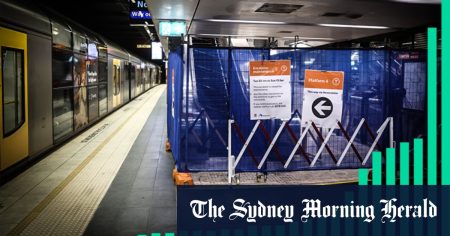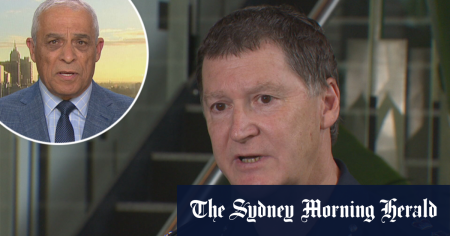"Fatberg" Forces Cancellation of Bryan Adams’ Perth Show: A Growing Urban Crisis
Introduction to the Great Fatberg Fiasco
In a bizarre turn of events, the city of Perth has found itself at the center of an unconventional crisis—one that involves neither natural disasters nor economic downturns, but something far more industriously human: a "fatberg." This poorly-named yet fascinating phenomenon has led to the abrupt cancellation of a highly anticipated concert by Canadian rock legend Bryan Adams, leaving fans disheartened and city officials scrambling for solutions. For those unfamiliar with the term, a "fatberg" is an urban phenomenon that sounds more like something out of a surreal comedy than reality. It refers to a massive, immovable clog within a sewer system, formed by the accumulation of fatty substances, grease, and non-biodegradable waste. These monsters of modern urban life have become a growing concern for cities worldwide, and now, they’ve claimed an unlikely victim: live music.
The Plight of the Perth Fatberg
The incident in question occurred in February 2025, just as Perth was gearing up to host Bryan Adams, the iconic singer-songwriter known for his timeless hits like Everything I Do (I Do It for You) and Summer of ’69. Adams, who has been touring continuously for decades, had promised a spectacular show for his Australian fans, including a stop in the vibrant city of Perth. But then, disaster struck. A major sewer blockage, later identified as a fatberg, brought not just the city’s underground infrastructure to a grinding halt, but also the concert itself. The fatberg’s sheer size and stubbornness made it impossible for city workers to address the issue in time, prompting officials to cancel the event altogether.
The cancellation sent shockwaves through the community. Thousands of disappointed fans took to social media to vent their frustrations, while local businesses that had been banking on the event’s economic boost were left reeling. But the fatberg’s impact extends far beyond a single concert. It has highlighted a much broader issue plaguing urban centers around the globe—namely, the growing strain on aging infrastructure systems. Sewer systems, in particular, are often forgotten until a crisis occurs, and by then, it’s often too late.
The Fatberg Menace: A Silent but Deadly Threat
So, what exactly is a fatberg, and why should we care? These behemoths of the sewer world are formed over time when waste materials, particularly fat, oil, and grease (FOG), are improperly disposed of down drains. When these substances enter the sewer system, they don’t just disappear; instead, they cling to the sides of pipes, trapping other debris like wet wipes, food scraps, and even human waste. Over months or years, these accumulated deposits harden into massive, concrete-like structures that can block entire sections of sewer lines. The results can be catastrophic, leading to sewage backups, overflows, and even environmental disasters.
In 2017, London made headlines when a fatberg weighing over 140 tons was discovered in the city’s sewer system. That monster, which would later be immortalized in a bizarre display at the Museum of London, was just one of many such discoveries. Since then, cities like New York, Paris, and Sydney have all encountered their own fatberg-related nightmares. Perth is not alone in its struggle, but its recent brush with this issue has brought the problem into sharp focus for its residents. Like many urban centers, Perth is grappling with aging infrastructure that was never designed to handle the waste output of modern, urbanized life.
When Sewage Meets Showmanship: The Bryan Adams Debacle
The cancellation of Bryan Adams’ concert could not have happened at a worse time. For fans who had been eagerly anticipating the event, the news was a gut punch. Adams, now well into his 60s, continues to be a dynamic performer who draws audiences of all ages. His concerts are more than just entertainment—they’re cultural events that offer a rare chance for people to come together and celebrate shared memories. For these fans, the fatberg’s interruption was a personal loss.
From a logistical standpoint, the cancellation was a no-brainer. With the sewer system in crisis, hosting a major event would have put an already strained infrastructure at risk. Public safety and health concerns were paramount, and officials rightly prioritized those over the disappointment of fans. However, the very fact that a rock concert—something so fundamentally unrelated to sewage—fell victim to a fatberg speaks to the pervasive nature of the problem. If a fatberg can take down an international rock star’s show, what else is at risk? The answer, it seems, is everything.
From the Fatberg’s Fury to Urban Renewal: A Call to Action
In the aftermath of the cancellation, the city of Perth has been left to grapple with the long-term implications of this incident. For city officials, the fatberg serves as a stark reminder of the need for better infrastructure management and public education campaigns. The reality is that fatbergs are not naturally occurring phenomena—they’re the result of human behavior. Whether it’s restaurants pouring grease down drains or households carelessly flushing wet wipes, these actions contribute to the growing menace beneath our streets.
To combat the fatberg threat, cities like Perth must adopt a proactive approach. This includes investing in better waste management systems, conducting regular sewer inspections, and launching public-awareness campaigns to educate residents about the dangers of improper waste disposal. It’s also a call for innovation—scientists and engineers are already exploring new technologies to break down fatbergs and prevent their formation in the first place. From enzymes that can dissolve grease buildup to advanced monitoring systems that detect pipe blockages before they become critical, the solutions are out there.
Wrapping Up the Fatberg Fiasco: A Lesson for Us All
The cancellation of Bryan Adams’ Perth concert due to a fatberg is more than just a strange headline—it’s a wake-up call for urban dwellers everywhere. It reminds us that the invisible systems we rely on daily—our water supply, our electricity, and yes, our sewers—are fragile and deserving of our care. As cities grow and populations increase, the challenges posed by infrastructure will only intensify.
For fans left disappointed in the wake of the fatberg’s fury, there’s hope. Bryan Adams is unlikely to retire anytime soon, and Perth will no doubt recover from this setback. But for the rest of us, this incident serves as a humorous yet sobering reminder of the interconnectedness of our modern world. After all, who could have predicted that a blob of grease in a sewer pipe would silence one of rock music’s most iconic voices? Life, it seems, is full of surprises—even beneath our feet.
In the end, the fatberg of Perth is not just a funny story or an inconvenient disruption—it’s a call to action. It’s a reminder that our daily choices have real-world consequences and that even the most mundane systems deserve our attention. So the next time you’re tempted to pour grease down the drain, think twice—not just for the sake of your city’s infrastructure, but for the sake of rock ‘n’ roll itself. After all, no one wants to be responsible for silencing the next Bryan Adams concert.












